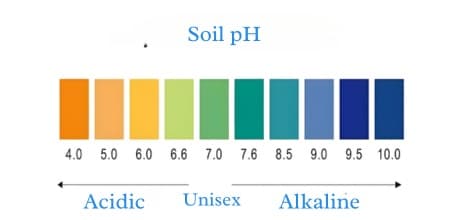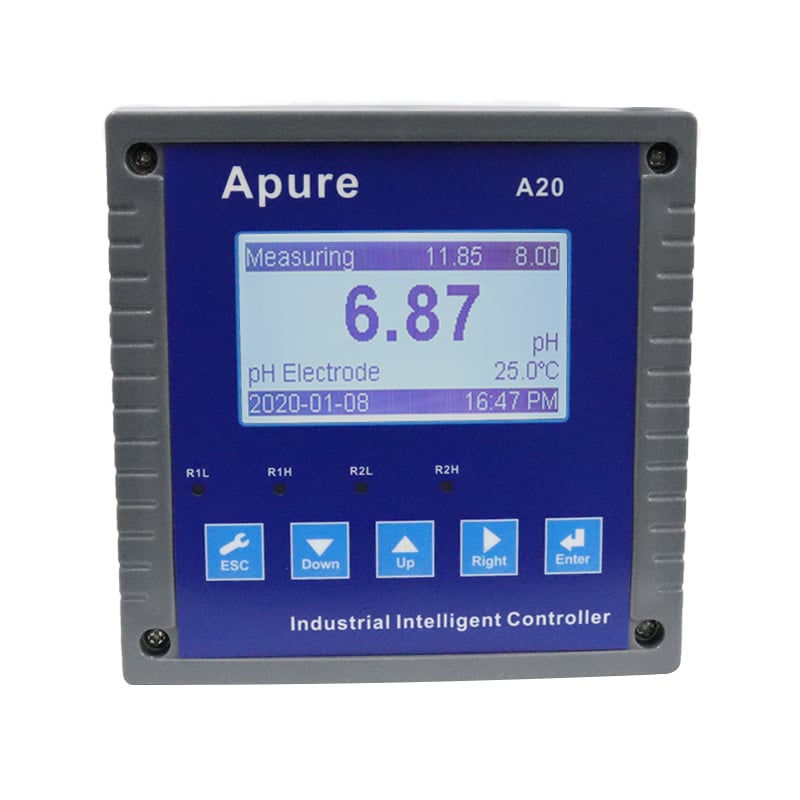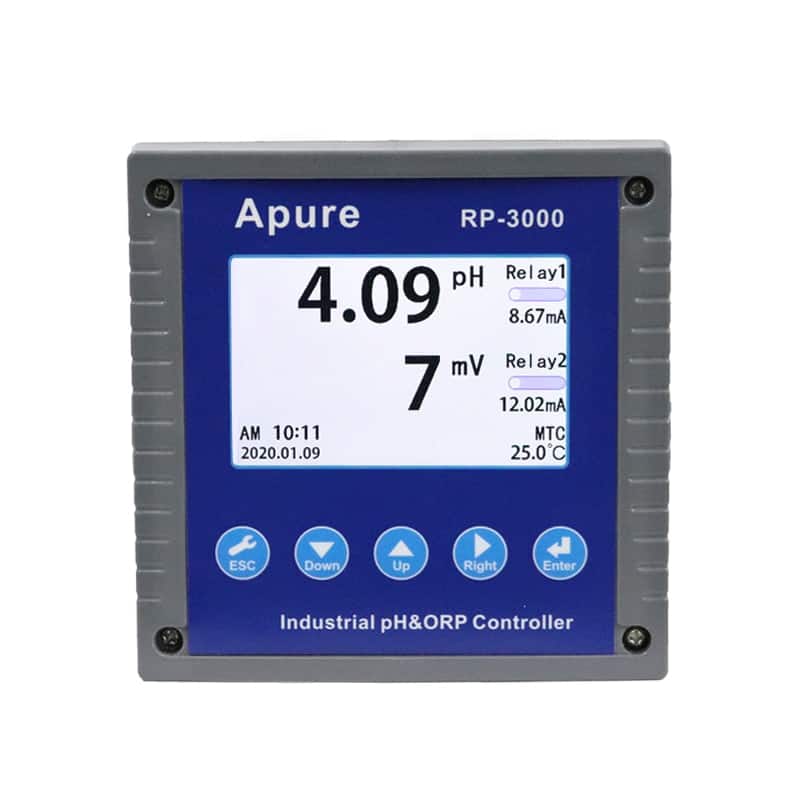The pH level of your soil directly affects the growth and health of your plants. Many gardeners and farmers face problems with high soil pH levels, which can affect nutrient uptake and crop growth. In this article, we will introduce you to soil pH testing equipment and show you several effective ways to lower your soil pH, helping you to improve the quality of your soil for healthier plant growth.
What’s pH?
pH is a measure of the acidity or alkalinity of a solution and represents the logarithmic value of the concentration of hydrogen ions (H⁺) in a solution. pH ranges from 0 to 14, with a pH of 7 indicating neutrality, less than 7 being acidic, and more than 7 being alkaline. the lower the pH, the more acidic the solution; the higher the pH, the more alkaline.
Common pH Values in Soil
The pH of the soil indicates the acidity or alkalinity of the soil and reflects the concentration of hydrogen ions in the soil. It has a significant impact on plant growth, as the acidity or alkalinity of the soil directly affects the uptake of nutrients by plants.
Acidic soil (pH < 7): This soil contains more hydrogen ions and plants may have a harder time absorbing certain nutrients. Certain plants, such as azaleas and blueberries, prefer acidic soil.
Alkaline soil (pH > 7): This soil contains more hydroxide ions. Certain nutrients do not dissolve easily in alkaline environments, resulting in plants lacking essential minerals. It is suitable for some plants that prefer alkaline environment, such as lavender.
Neutral soil (pH = 7): This soil is ideal for most plants as it provides the most balanced conditions for nutrient uptake.

The Role of Soil PH
- Affects Nutrient Availability: Different pH levels affect the solubility of nutrients in the soil, which in turn affects nutrient uptake by plants. Neutral soils (pH 6-7) are best suited for most plants, while acidic or alkaline soils may result in nutrient deficiencies.
- Influence on microbial activity: Soil pH determines the type and activity of microorganisms and influences the decomposition of organic matter and nutrient cycling in the soil. Neutral soils favor microbial activity, while overly acidic or alkaline soils inhibit their activity.
- Affects root health: Soils that are too acidic or too alkaline affect the development of plant roots and reduce their ability to absorb water and nutrients.
- Affects plant health and growth: Soil pH that is too high or too low may lead to slow growth and problems such as yellowing of leaves.
- Affects the solubility of toxic substances: Soils that are too acidic or too alkaline may cause harmful elements (e.g., aluminum, sodium) to dissolve and damage plants.
How do I Test My Soil pH?
Using pH Test Paper
Take some soil samples (about 1 to 2 cups), preferably a mixed sample from multiple locations.
Place the soil sample in a clean container, add the appropriate amount of deionized water, and mix well.
Allow the mixture to sit for a few minutes, then test the pH of the liquid with test paper.
The pH of the soil can be determined from the color change of the test paper and compared to the pH standard color card on the package.
Use of Digital pH Meters
A digital pH meter provides more accurate pH measurements. The steps for use are as follows:
- First clean the probe of the pH meter to ensure that it is free of dirt.
- Mix the soil sample with deionized water to form a slurry.
- Insert the probe of the pH meter into the mixture, wait for a few seconds and the pH value of the soil will be displayed on the screen.
Soil pH testing usually requires a higher precision pH sensor, suitable for use with the A20 Water pH ORP Controller or the RP-3000 Automatic pH ORP Controller, which are capable of monitoring both the pH and ORP values of the aqueous solution in the soil.The ORP value can help you to understand the redox state of the soil, which in turn can help you to determine the health and microbial activity of the soil.


Using a Soil pH Test Kit
Such kits usually contain tools such as pH reagents, test tubes, test strips or digital displays. The method of operation usually includes:
Take a quantity of soil sample and add the reagents in the test kit.
Wait a period of time according to the instructions and the reagent will change color.
Read the pH value through the color change comparison card, or directly on the digital display.
How can I Naturally Lower My Soil pH?
- Addition of sulphur: Sulphur is the most commonly used material for lowering soil pH. It is converted into sulphuric acid by microorganisms in the soil, gradually acidifying the soil.
- Use of organic matter (e.g., compost, humus): Adding organic matter not only improves soil structure but also gradually lowers soil pH. Humus, compost and some organic fertilizers produce organic acids during decomposition, which help acidify the soil.
- Add peat (Peat Moss): Peat is another effective soil acidifying material, rich in organic acids, which can lower the pH of the soil.
- Use pine needles: Pine needles release organic acids as they decompose, which are effective in lowering soil pH.
- Use acidic fertilizers: Some acidic fertilizers (such as ammonium sulfate) can help lower the pH of the soil while providing plants with nutrients such as nitrogen.
Summary
Lowering the pH of your soil is an important part of maintaining a healthy garden. By following the tips in this blog post, you can easily lower the pH of your soil and ensure that your plants are getting the nutrients they need to thrive.
APURE is a manufacturer specializing in the water treatment industry, dedicated to providing customers with high quality water quality monitoring and control equipment. Its product line covers industrial ORP controllers, on-line conductivity meters, dissolved oxygen meters, residual chlorine testers, flow meters, level meters, pressure transmitters, etc., as well as laboratory water quality analysis instruments. All the products have been verified by practical application and have good feedback from customers. In today’s rapidly changing industrial process control, we committed to make the process control faster, more flexible, more efficient, more economical. APURE is looking forward to working with you, and jointly promote the development of the water treatment industry.
